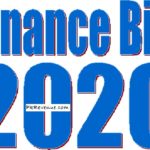ISLAMABAD: The Standing Committee on Finance, Revenue and Economic Affairs, in a meeting, has rejected new clauses of taxpayers profiling and real-time access to information.
The committee strongly rejected the amendments to the taxpayers profile, appeal to appellate tribunal, offences and penalties and power to enter and search premises.
Clauses related to real time access to Information and databases have been disapproved as well, said a statement.
The standing committee meeting was held last week took up the Finance Bill 2020, containing the Annual Budget statement presented in the House on 12 June, 2020. Review of the Income Tax Ordinance, 2001 and Federal, Excise Provisions of Finance Bill, 2020 was completed.
Amendments recommended by the Committee in the Public Finance Management Act 2019 were carried out and shared with the Committee.
Chaired by Senator Farooq Hamid Naek, the meeting was attended by Senator Mohsin Aziz, Senator Zeeshan Khanzada, Senator Musadik Masood Malik, Senator Mian Muhammad Ateeq Sheikh, Senator Senator Talha Mehmood, Senator Ayesha Raza Farooq, and senior officers from the Ministry for Finance, Revenue and Economic Affairs, Ministry of Commerce and Federal Board Revenue.
The Committee deliberated over Restriction on deduction of profit on debt payable to associated enterprises. Agreements for the avoidance of double taxation and prevention of fiscal evasion were discussed as well.
Special concessions have been awarded to items that are essential during COVID 19 Pandemic.
The Committee appreciated the measures taken by the FBR to deal with vast consequences of the Pandemic. Omission of collection of advance tax from dealers, commission agents and arhatis etc., by market committees was welcomed.
This is an important measure to promote agriculture in the country.
Advance tax on education related expenses has been omitted as well.
In an attempt to discourage the use of caffeinated drinks FED has been increased from 13 percent to 25 percent.
Imported cigarettes, cheroots, cigarillos, cigars of tobacco and tobacco substitutes have been subjected to FED at 100 percent.


